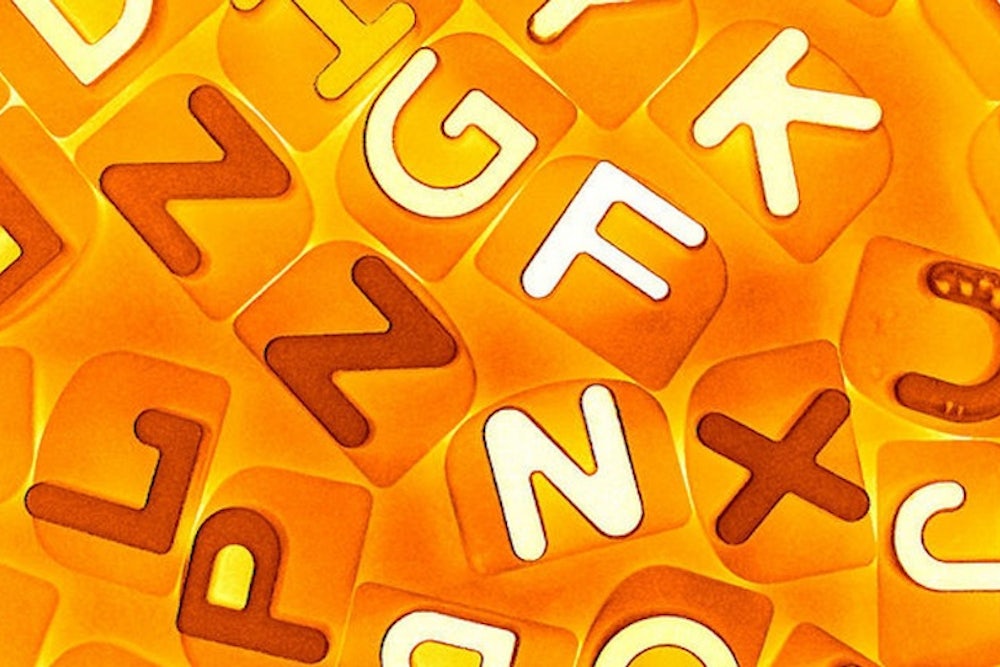You can’t choose the name you're given without going to court, but you can shake things up by adding a middle initial. New evidence suggests that, if you’re trying to convey intelligence, that might not be a bad idea. In a study published last week in the European Journal of Social Psychology, Wijnana A.P. van Tilburg, a psychologist at the University of Southampton, and Eric R. Igou, a psychologist at the University of Limerick, designed a series of experiments to explore how middle initials affect perceptions of intellect. Van Tilburg and Igou suspected that the presence of middle initials would make people seem smarter, because we tend to see middle initials in prestigious contexts—bylines in academic journals, to take a pertinent example, or correspondence from doctors or lawyers.
In one experiment, van Tilburg and Igou recruited 85 students from the University of Limerick and assigned them to read the same piece of text—a non-technical description of Einstein’s Theory of Relativity—and rank the writing ability of the author on a scale of one to seven. The students were assigned to one of four groups; for each group, the author’s name was displayed as either David Clark, David F. Clark, David F.P. Clark, or David F.P.R. Clark. As Wijnana and Igou predicted, the students thought David F. Clark, who scored an average of 5.8, was a better writer than David Clark, who got a 4.92. With a mean score of 6, Mr. F.P.R. Clark was considered the best writer of all. In another experiment involved in the study, the psychologists gave students the option of joining a team whose members were listed either with or without middle initials. Students more often opted for the middle-initials team, if the competition hinged on something intellectual—a quiz about literature, for instance—but not if they were joining an athletic team.
How does the presence of middle initials stack up with other affectations, like a “van” or a “von”? (Is it a coincidence that Wijnana A.P. van Tilburg designed this study?) By having students guess the social status of people with different variations of the same name, the researchers were able to compare the effects of middle initials, an “infix” like “van,” or an extra syllable. Students guessed the status of people described by four names: a standard one, like “David Mitchell”; a name with an “infix,” like “David van Mitchell”; a name with middle initials—“David F.P.R. Mitchell”; or a name with an extra syllable tacked on, like “David Mitchellson.” Students were most impressed by Mr. F.P.R. Mitchell, followed by van Mitchell, Mitchellson, and finally, plain old Mitchell.


It’s been a big week for names research. (The most significant name-related research of the year is still Gregory Clark's book on how surnames can influence social standing for generations.) Another new study, this one appearing in the journal PLOS ONE, found that people with easy-to-pronounce names are considered more credible. Psychologists at the University of Queensland in Australia had students rate the “pronounceability” of first and last names from 18 countries, then recombined them to generate 218 foreign-sounding names whose pronounceability they could quantify. Difficult-to-pronounce names, according to this scale, included “Czeslaw Ratynska” and “Hur Hye-seong”; easy to pronounce names included “Amira El-Naggar” and “Lubov Ershova.” The psychologists read the students various statements, like “Turtles are deaf,” and told them they were the favorite trivia facts of people bearing either easy or hard-to-pronounce names. It turned out students were more likely to believe the statements were true if they were attributed to someone with an easy-to-pronounce name. In another part of the study, students were told to select a tour guide who would make them feel safe in a dangerous situation. Based only on a list of names, the students were asked to rank how safe they would feel with each guide—and, in keeping with the researchers’ hypothesis, they preferred tour guides whose names they could pronounce.
